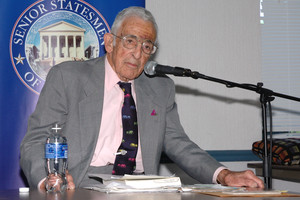 What are our most important recent decisions? How would our founding fathers view them? What happens when a new Supreme Court justice needs to be appointed? Can a non-lawyer serve on the Supreme Court?
What are our most important recent decisions? How would our founding fathers view them? What happens when a new Supreme Court justice needs to be appointed? Can a non-lawyer serve on the Supreme Court?
What differences have the current justices made individually? Or from a gender standpoint, since there are now four women members for the first time in history? Does race make a difference in decisions? Should we have more members of the Supreme Court, as Roosevelt attempted?
These questions were answered at the November 13, 2013 meeting and a recording is available below. The program was moderated by SSV board member Charles Smith.
[display_podcast]
Henry J. Abraham, James Hart Professor of Government Emeritus at the University of Virginia, graduated from Kenyon College in 1948 with a bachelor’s degree in political science, first in his class, summa cum laude and Phi Beta Kappa. He earned his M.A. in public law and government from Columbia University in 1949, and received his Ph.D. in political science from the University of Pennsylvania in 1952, where he began his teaching career. In 1972 Dr. Abraham became a chaired professor in the Department of Government and Foreign Affairs at the University of Virginia. In 1983 he was awarded the University’s most prestigious recognition, the Thomas Jefferson Award, and in 1993 he received the First Lifetime Achievement Award of the Organized Section on Law and Courts of the American Political Science Association. He retired from full-time teaching in 1997 after nearly a half-century in the classroom.
Professor Abraham is a leading authority on constitutional law, civil rights and liberties, and the judicial process. A pioneer in comparative judicial studies, he has served as a Fulbright Scholar in Denmark and has lectured throughout the world. The author of 13 books in 48 editions including The Judicial Process: An Introductory Analysis of the Courts of the United States, England and France, 7th ed., and Freedom and the Court: Civil Rights and Liberties in the United States, 8th ed., he continues to research, publish and lecture. His most recent book is Justices, Presidents and Senators: A History of Supreme Court Appointments from Washington to Bush II. In addition, he has published more than one hundred articles, book chapters, essays and monographs. His record of civic and university service is as long as it is distinguished.
Henry and his wife Mildred, a rare books collector and bibliographer, live in Charlottesville. They have two sons and four grandchildren.
Program Summary
Dr. Abraham’s presentation should be heard on podcast to be appreciated, but here is a sampling of the points he addressed.
The courts represent the favorable choice of more Americans by 10-20 percentage points over the other two branches of government.
The constitution includes two very significant concepts with regard to the Supreme Court. First, who is on the court (the members are not elected but rather nominated by the president and confirmed by the Senate); and second, their perception of their judicial role, which is the line between judicial activism and judicial restraint. There are phrases in the constitution which explains why the court so frequently seems to be out of balance.
There are four reasons why presidents select people for the judiciary: merit, political and personal friendship, a person’s real politics, and the notion of representativeness. The presidents have done pretty well with selecting members of merit. Only one member has been impeached and he was not convicted; indeed, he was a good jurist but he just had a big mouth. Of the 112 members who have served on the Supreme Court, Dr. Abraham considers only six as failures. He says that 12 are regarded as giants and great justices. The current court is okay!
Religion is one of the representative notions, but the present court is not characteristic. Historically, there have been 92 Protestants, 12 Catholics and eight Jews, of the 112 members. The present court has six Catholics and three Jews. However, religion does not play a major role in their positions on cases.
A typical perception is that there is a great deal of strife on the court. Actually, the strife is embedded in the cases, and when it comes to their personal and social relationships, the justices are all quite friendly and socialize together.
The current nine-judge court is divided four liberals to four conservatives, with Anthony Kennedy, who is basically a conservative, but who likes to be in the middle. Chief Justice John G. Roberts is a conservative. The most conservative member is Samuel A. Alito, although Antonin Scalia and Clarence Thomas are very close. Stephen G. Breyer and all three women, Sonia Sotomayor, Elena Kagan, and Ruth Bader Ginsburg, are liberals with Justice Ginsberg the most liberal.
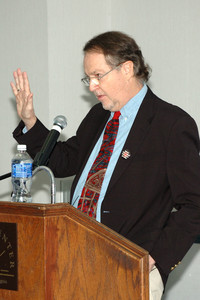 At the January 8, 2014 meeting, Whitehead explored the many ways in which our freedoms and privacy rights have been eroded in recent years as documented in his new book, A Government of Wolves: The Emerging American Police State. Whitehead’s book paints a chilling portrait of a nation in the final stages of transformation into a police state, complete with surveillance cameras, drug-sniffing dogs, SWAT team raids, roadside strip searches, blood draws at DUI checkpoints, mosquito drones, tasers, privatized prisons, GPS tracking devices, zero tolerance policies, over-criminalization, and free speech zones. It also reveals the inner workings of an increasingly pervasive surveillance state, including the NSAs program to track the communications of all Americans and map the daily activities of all people in the United States. As nationally syndicated columnist Nat Hentoff observed about Whitehead: John Whitehead is not only one of the nation’s most consistent and persistent civil libertarians, he is also a remarkably perceptive illustrator of our popular culture, its in-sights and dangers.
At the January 8, 2014 meeting, Whitehead explored the many ways in which our freedoms and privacy rights have been eroded in recent years as documented in his new book, A Government of Wolves: The Emerging American Police State. Whitehead’s book paints a chilling portrait of a nation in the final stages of transformation into a police state, complete with surveillance cameras, drug-sniffing dogs, SWAT team raids, roadside strip searches, blood draws at DUI checkpoints, mosquito drones, tasers, privatized prisons, GPS tracking devices, zero tolerance policies, over-criminalization, and free speech zones. It also reveals the inner workings of an increasingly pervasive surveillance state, including the NSAs program to track the communications of all Americans and map the daily activities of all people in the United States. As nationally syndicated columnist Nat Hentoff observed about Whitehead: John Whitehead is not only one of the nation’s most consistent and persistent civil libertarians, he is also a remarkably perceptive illustrator of our popular culture, its in-sights and dangers.
 What are our most important recent decisions? How would our founding fathers view them? What happens when a new Supreme Court justice needs to be appointed? Can a non-lawyer serve on the Supreme Court?
What are our most important recent decisions? How would our founding fathers view them? What happens when a new Supreme Court justice needs to be appointed? Can a non-lawyer serve on the Supreme Court?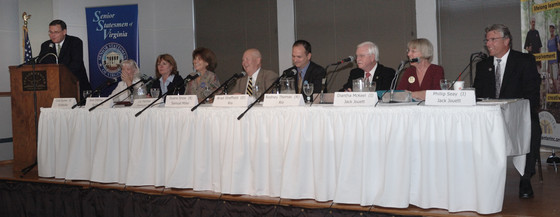
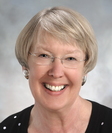
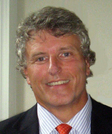
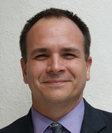
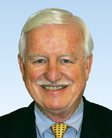
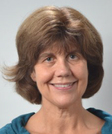
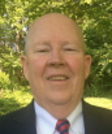

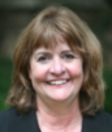
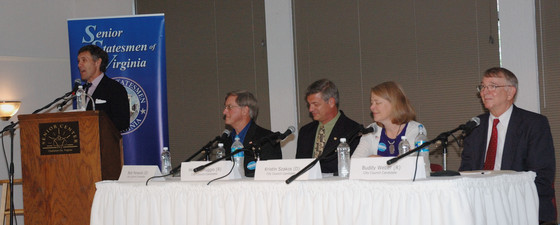
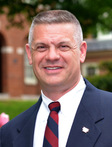 Mike Farruggio (R) was born in Brooklyn and raised in Freeport, NY, Mike served four years in the USAF. He began his law enforcement career with the NYPD relocating to Charlottesville in 1988 to join the Charlottesville Police Department. He has served in patrol, narcotics, community policing and traffic units and retired as the sergeant of the administrative bureau unit for training, policy, recruiting and accreditation. Mike lives in the Fry’s Spring Neighborhood with his wife and two children, who both attend City public schools. Mike has served on the Fry’s Spring Neighborhood Association, the Charlottesville Planning Commission, the Parks and Recreation Advisory Board as well as others.
Mike Farruggio (R) was born in Brooklyn and raised in Freeport, NY, Mike served four years in the USAF. He began his law enforcement career with the NYPD relocating to Charlottesville in 1988 to join the Charlottesville Police Department. He has served in patrol, narcotics, community policing and traffic units and retired as the sergeant of the administrative bureau unit for training, policy, recruiting and accreditation. Mike lives in the Fry’s Spring Neighborhood with his wife and two children, who both attend City public schools. Mike has served on the Fry’s Spring Neighborhood Association, the Charlottesville Planning Commission, the Parks and Recreation Advisory Board as well as others. Bob Fenwick (D) served in Vietnam as a combat commander with the 4th Infantry Division and graduated from Georgetown University with a BS in Physics. He has taken undergraduate and graduate courses in Civil Engineering and Construction Management at The George Washington University School of Engineering in Washington, D.C. Bob has been a small business owner for 40 years as a construction contractor. His two boys attended Charlottesville Public Schools and are currently serving in the US Army. Both boys have served in Afghanistan. Bob is running for office be-cause he believes the citizens of Charlottesville would benefit from having a voice of experience (business, technical and personal) in important decisions.
Bob Fenwick (D) served in Vietnam as a combat commander with the 4th Infantry Division and graduated from Georgetown University with a BS in Physics. He has taken undergraduate and graduate courses in Civil Engineering and Construction Management at The George Washington University School of Engineering in Washington, D.C. Bob has been a small business owner for 40 years as a construction contractor. His two boys attended Charlottesville Public Schools and are currently serving in the US Army. Both boys have served in Afghanistan. Bob is running for office be-cause he believes the citizens of Charlottesville would benefit from having a voice of experience (business, technical and personal) in important decisions.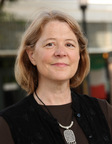 Kristin Szakos (D) is vice mayor of Charlottesville. Among innovations she has introduced are Our Town council meetings, Downtown Ambassadors, the Youth Council and paperless Council meetings. Kristin chairs the regional Jail Board, and sits on numerous boards and commissions. She is vice chair of the National Council on Youth, Education and Families. With a master’s degree in journalism from Northwestern University, Kristin has worked as a reporter, editor, grant writer, administrator and translations editor, and has co-authored two books on community organizing. She and her husband Joe have two daughters, Anna, 23, and Maria, 22, and have fostered four children.
Kristin Szakos (D) is vice mayor of Charlottesville. Among innovations she has introduced are Our Town council meetings, Downtown Ambassadors, the Youth Council and paperless Council meetings. Kristin chairs the regional Jail Board, and sits on numerous boards and commissions. She is vice chair of the National Council on Youth, Education and Families. With a master’s degree in journalism from Northwestern University, Kristin has worked as a reporter, editor, grant writer, administrator and translations editor, and has co-authored two books on community organizing. She and her husband Joe have two daughters, Anna, 23, and Maria, 22, and have fostered four children. Charles “Buddy” Weber (R) graduated from the University of Virginia in 1968 with a BS degree and a Commission in the United States Navy. He then served his country as a carrier-based fighter pilot for 27 years rising to the rank of Captain and returning to UVA in 1993 as a professor where he also attended Law School. After graduating, he has served the Charlottesville community as a court appointed criminal defense attorney advocating for many clients unable to afford critical legal services. Buddy has worked tirelessly to ensure equal justice for all regard-less of race or economic status.
Charles “Buddy” Weber (R) graduated from the University of Virginia in 1968 with a BS degree and a Commission in the United States Navy. He then served his country as a carrier-based fighter pilot for 27 years rising to the rank of Captain and returning to UVA in 1993 as a professor where he also attended Law School. After graduating, he has served the Charlottesville community as a court appointed criminal defense attorney advocating for many clients unable to afford critical legal services. Buddy has worked tirelessly to ensure equal justice for all regard-less of race or economic status. Dr. Jocelyn (Jo) Reeder PT DPT GCS graduated as a physiotherapist in 1983 from King’s College London. She practiced physiotherapy in a variety of patient care settings in the National Health Service before moving in 1989 to Boston Massachusetts where she worked at Massachusetts General Hospital. After a brief return to England, Jo and her family settled in Charlottesville in 1994. Jo has worked at UVA Medical Center and also in long-term care in Charlottesville. She gained her Doctorate in Physical Therapy in 2008 from Shenandoah University and was certified as a geriatric clinical specialist by the American Board of Physical Therapy in 2009. She has served as the rehabilitation manager for Continuum Home Health Care.
Dr. Jocelyn (Jo) Reeder PT DPT GCS graduated as a physiotherapist in 1983 from King’s College London. She practiced physiotherapy in a variety of patient care settings in the National Health Service before moving in 1989 to Boston Massachusetts where she worked at Massachusetts General Hospital. After a brief return to England, Jo and her family settled in Charlottesville in 1994. Jo has worked at UVA Medical Center and also in long-term care in Charlottesville. She gained her Doctorate in Physical Therapy in 2008 from Shenandoah University and was certified as a geriatric clinical specialist by the American Board of Physical Therapy in 2009. She has served as the rehabilitation manager for Continuum Home Health Care. Donald E. Nuechterlein grew up in Saginaw, Michigan, and received his undergraduate and PhD degrees in political science from the University of Michigan. He served on active duty in the Navy during World War II and was commissioned in 1945. After the war ended, he served in the U.S. military occupation of Germany, in Bremerhaven and Berlin.
Donald E. Nuechterlein grew up in Saginaw, Michigan, and received his undergraduate and PhD degrees in political science from the University of Michigan. He served on active duty in the Navy during World War II and was commissioned in 1945. After the war ended, he served in the U.S. military occupation of Germany, in Bremerhaven and Berlin. Rob Bell
Rob Bell David Toscano
David Toscano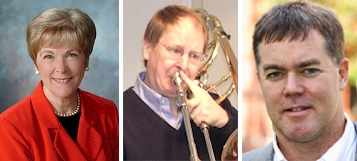
 Panelists Donna Goings, Robert Graham and David Shreve examined the problems with today’s health care system, their origins and how they would be addressed by a proposed national health insurance program. The panel included the perspectives of a consumer/patient, a medical professional and an economist. They spoke at the June 10, 2009 meeting of the
Panelists Donna Goings, Robert Graham and David Shreve examined the problems with today’s health care system, their origins and how they would be addressed by a proposed national health insurance program. The panel included the perspectives of a consumer/patient, a medical professional and an economist. They spoke at the June 10, 2009 meeting of the  Virginia House of Delegates members Rob Bell and David Toscano provided their perspectives on the issues that came before the 2009 legislature at the May 13, 2009 meeting of the
Virginia House of Delegates members Rob Bell and David Toscano provided their perspectives on the issues that came before the 2009 legislature at the May 13, 2009 meeting of the